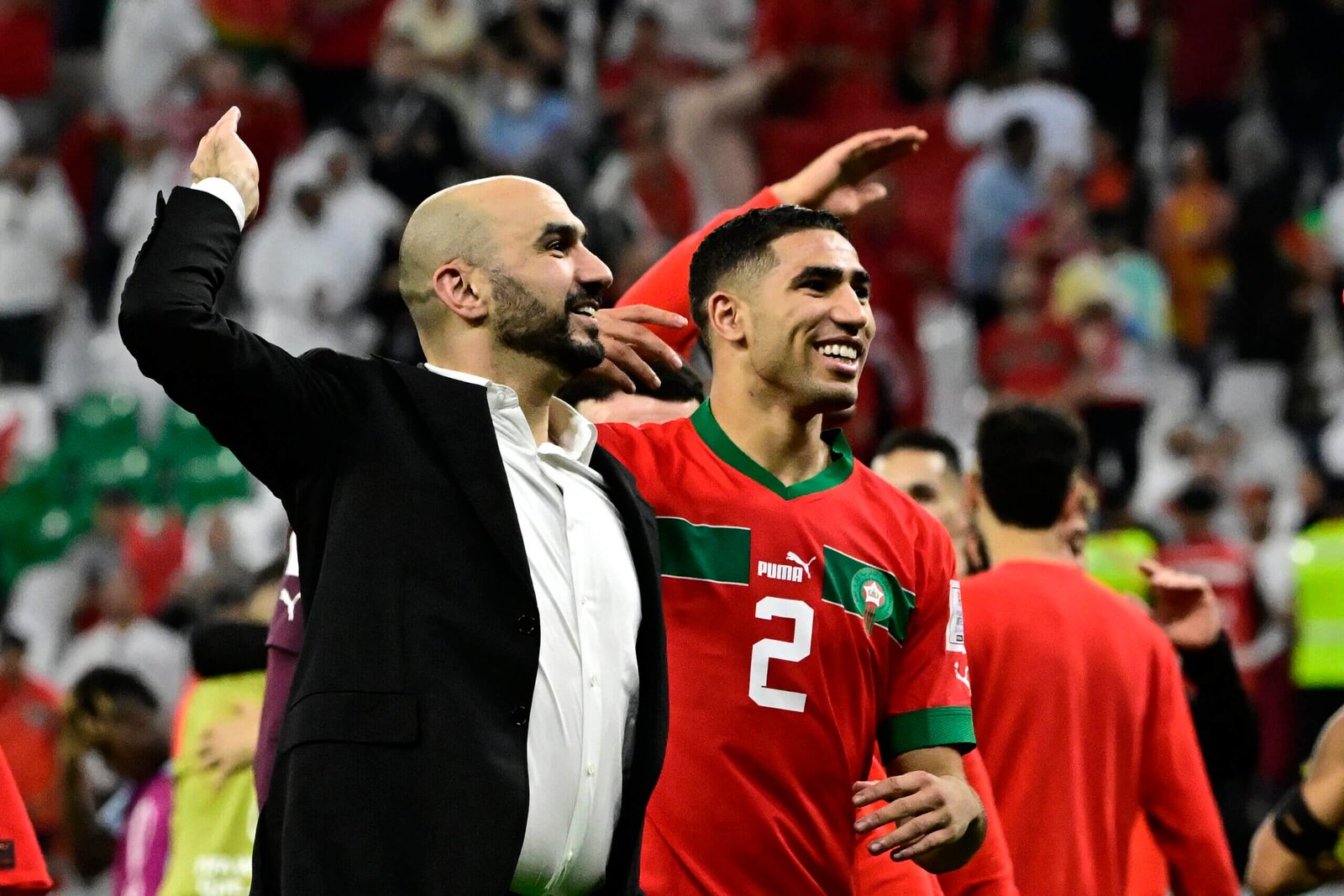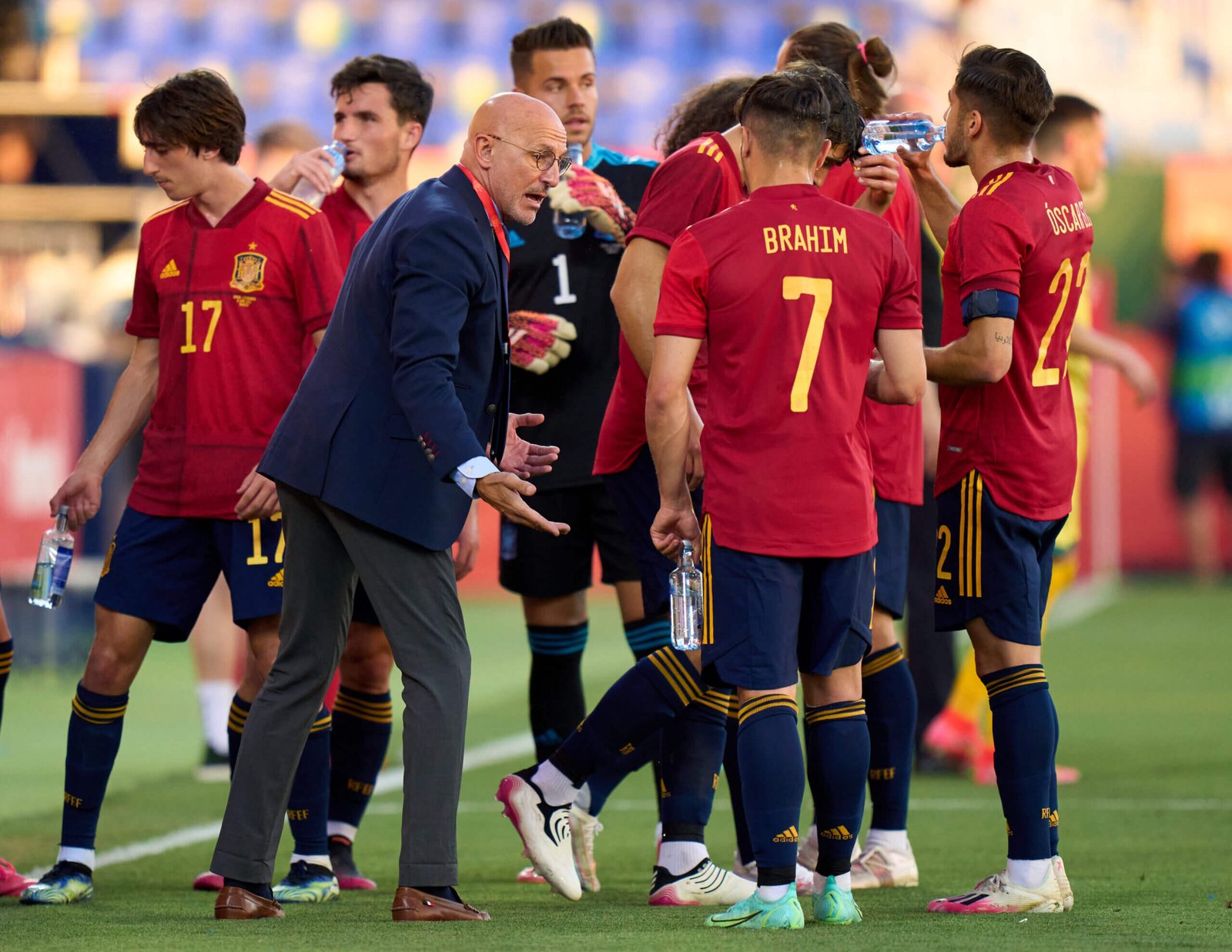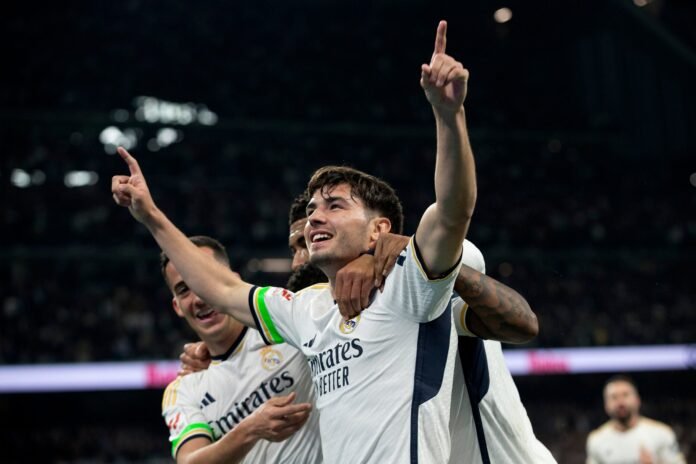Brahim Diaz opting to represent Morocco is the result of a determined charm offensive. They have been trying to convince him to choose them over Spain for years.
Important political figures, some very close to Morocco’s King Mohammed VI, have been involved in persuading Real Madrid’s 24-year-old attacking midfielder, a process that took years to reach Wednesday’s key moment when Diaz was finally called up to represent the North African country.
“Football in Morocco is very important on a political and social level, this is a matter of state,” a source close to the country’s football association told The Athletic months ago, preferring to speak anonymously to protect relationships.
“Lamine Yamal escaped, but with Brahim, they will not fail.”
Diaz, like Barcelona’s 16-year-old forward Yamal, was born in Spain. He is eligible for selection by Morocco through his paternal grandmother.
Growing up in Malaga, and even as his football career progressed abroad, his priority was to represent La Roja and he has always felt a stronger sense of belonging to Spain. This can be seen in details such as his professional name: he has preferred to be known as Brahim Diaz instead of Brahim Abdelkader Diaz. Spanish naming customs would ordinarily mean his first surname, Abdelkader, would be the more commonly used.
He played 25 times for various Spain youth teams between 2016 and 2021, starting at under-17 level. With the under-19s and under-21s, he performed under Luis de la Fuente, Spain’s senior team manager since December 2022.
In June 2021, Diaz even made a full senior debut for Spain in a friendly against Lithuania. He started and scored in the 4-0 win, a match that was played by Spain’s under-21 side as the senior players were unable to fulfil the fixture due to a COVID-19 outbreak. De la Fuente was on the bench.
Diaz celebrating his goal against Lithuania (Angel Martinez/Getty Images)
“I’ve probably been the coach who has selected him the most,” said the 62-year-old on Monday, reacting to news that Diaz had decided to switch allegiance to Morocco.
“I fully and absolutely respect his position. Everyone is free. The most important thing (to play for Spain) is to want to, without demands, without conditions, with the same rights and obligations as everyone else. I haven’t spoken to him. I either call him up or I don’t call him up.”
De la Fuente’s comments hinted at a certain unease at the way events have unfolded.
Sources at the Spanish Football Federation (RFEF) suggested to The Athletic that Diaz’s representatives had been pushing hard for him to be called up by Spain, something denied by sources close to the player.
What is certainly true is that Diaz, who was also called up by Luis Enrique in the November following that Lithuania match in 2021 (but did not play again for Spain), has been waiting for the RFEF. It’s also true he has had little indication that he figures prominently in their plans.
Last week, Diaz told the Moroccan FA he had finally decided to play for the country, but he did not inform the RFEF of this.
According to RFEF sources, De la Fuente had included him in the pre-squad for the friendlies against Colombia and Brazil in March, but, also according to RFEF sources, Diaz wanted more — some kind of guarantee he would feature at this summer’s European Championship in Germany.
Now, his international future finally seems settled after a long period of uncertainty.
“It’s a dream come true, every kid’s dream,” Diaz told RFEF media excitedly after that November 2021 senior call-up. “I found out from my family and I said, ‘No way!’.”
By that point, he had already been saying no to Morocco for roughly four years.
Back in 2017, then-Morocco manager Herve Renard, now coach of the France women’s team, travelled to Manchester to meet with him and his family.
At that time, Diaz was on the books of Manchester City, who he joined from Malaga in 2015 at 16 years old. It was a cordial meeting and one that resulted in him turning them down. They never stopped trying, but Diaz’s priority remained Spain and he continued to represent the nation of his birth at youth level.
When Walid Regragui was appointed Morocco coach in August 2022, things began to change. He became a very active component of Morocco’s courtship. Diaz had left City for Real Madrid and was on loan at AC Milan. Regragui was determined to convince the player to represent Morocco at the World Cup in Qatar.

Regragui and Morocco defender Achraf Hakimi celebrate World Cup victory over Spain (Javier Soriano/AFP via Getty Images)
Diaz turned this down, but contact with Regragui remained constant — the manager travelled to Italy to speak with him last season and has visited him multiple times in Madrid this term, too.
All of this began to have the desired effect. Last summer, Diaz asked several Morocco players what the atmosphere and dynamics in the dressing room were like. He was concerned about his potential adaptation due to cultural and language issues, but other players brought up in Spain told him he had nothing to worry about.
Morocco were becoming increasingly optimistic he would eventually choose them and in October the country’s FA president, Fouzi Lekjaa, told Regragui and some key players he was certain Diaz was going to do so. Some even thought he might play for them at the Africa Cup of Nations this January and February.
Also in October, injury to Yeremi Pino meant an emergency replacement was required in De la Fuente’s Spain squad. The manager instead turned to Ansu Fati, overlooking Diaz once again.
Still, Diaz was not fully convinced by Morocco’s proposition. He was even annoyed by reports stating he had decided to play for them. He wanted to continue waiting for Spain and, importantly, did not want to leave Real Madrid mid-season for the Africa Cup of Nations as he hoped to start playing more minutes, which has since happened.
But as the weeks went by, Diaz’s doubts grew. He felt that while Morocco spared no effort, Spain showed little interest. Sources close to the player have expressed disappointment that, for example, De la Fuente never called to discuss how he saw things. RFEF sources say the usual process is not for the national team manager to call players in this manner.
However, in the past, it was widely reported that De la Fuente did phone Sergio Ramos to explain why he would not be calling him up. And when 27-year-old Real Sociedad centre-back Robin le Normand (who was born in France but had lived in Spain for seven years) was given Spanish citizenship in June 2023 — making him available for selection — it was clear De la Fuente had spoken with him throughout the process.
By contrast, Morocco’s football leaders have gone to great pains to detail the importance Diaz holds for them, especially as they prepare to host the Africa Cup of Nations in 2025. That will be held in the summer and so would not limit his availability at club level.
Diaz’s naturalisation process is well advanced and is expected to be rushed through this month with the help of the government. He will likely have no problem making his debut for Morocco in their March home friendlies with Angola (March 22) and Mauritania (March 26).

De La Fuente and Diaz, pictured in June 2021 (Angel Martinez/Getty Images)
Meanwhile, at Real Madrid, the situation has created some concern. Club sources describe their disappointment that another young player who they feel should have been treated as a priority for Spain has been passed over. It is not the first such feeling at the club. They had the same impression when academy graduate Nico Paz (who was born in Spain) was picked up by Argentina’s youth squads, with Javier Mascherano (the current under-23 manager) travelling to Madrid to visit him.
By contrast, the lengths to which the RFEF went to prioritise Yamal’s call-up is much commented on at the club, with federation members travelling to Barcelona to meet with the player and his family.
For Morocco, Diaz’s choice is a significant coup, possibly the greatest success of a new determined strategy to bring in the best foreign-born talent. When Diaz was called up on Wednesday, Madrid’s 18-year-old defender Yusi was also selected for the first time. He, too, played for several of Spain’s youth teams before deciding to switch allegiance this summer.
In Morocco, football is seen as a perfect tool to boost the country’s image abroad, seeking the political, social and economic benefits that come with it. In that regard, they have already achieved another big goal — the country will co-host the 2030 World Cup with Spain and Portugal.
Their remarkable run to the World Cup semi-finals in 2022, knocking out Portugal and Spain in the process, has only helped this strong commitment to improving the national team.
One source close to the Morocco dressing room puts it this way: “It was a message to the world that they mean business.”
(Top photo: Juan Carlos Rojas/picture alliance via Getty Images)
Read the full article here


